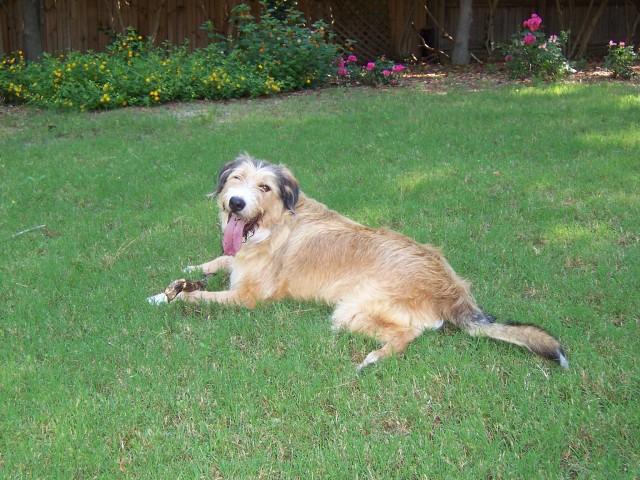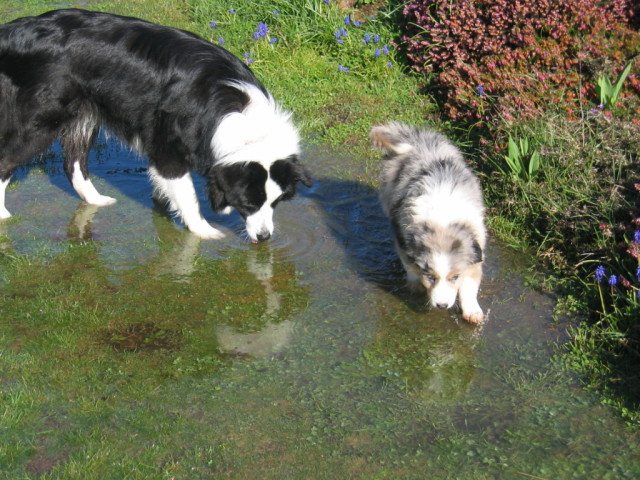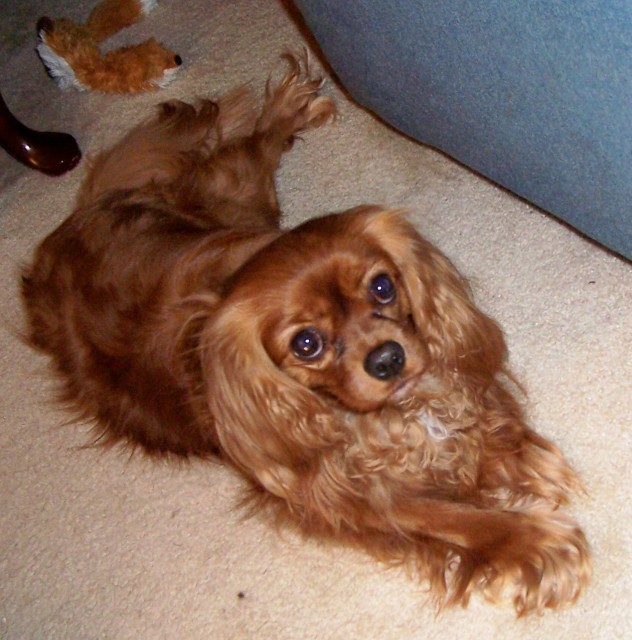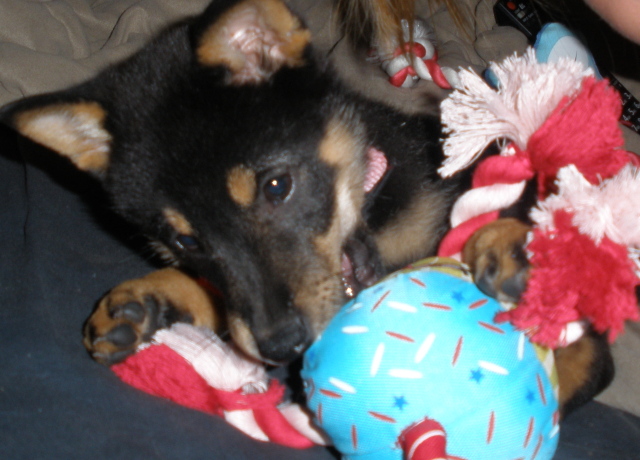QuestionI have two dogs, one is a Jack Russell Terrier (dominant dog of the house)who is 3-1/2 and the other is a Dachshund who is 2. The Jack Russell is continuously chewing on the Dachshunds ears. Sometimes he doesn't seem to mind it because it's more gnawing then hard chewing but it does get to the point where the Dachshund become annoyed and tries to hide is head. Would you know of any products that I could put on his ears to stop the Jack Russell from chewing? I called my vet and they wanted me to come have a consultation with a behavior specialist, which I wouldn't mind doing however I'm not in the position to drop $100.00 plus +. I know that Jack Russell's are very hard headed and that this will take a lot of working with the dog to fix but it needs to be done! The Jack Russell is dominant but they both get along great together and never ever fight. I do have a crate that I could put the Jack Russell in when he does chew but do you think that he would understand the discipline being given?
Thanks so much for your help.
AnswerYou're very fortunate to have a veterinarian who has an actual, certified specialist; I'd be sure to check the credentials of this person before thinking of using him/her (and also references from others.)
You can redirect the JRT's behavior but you have to do it EVERY TIME. Putting the JRT into a crate is NOT the answer; he will not associate the crating with his behavior. You can't use any aversive (such as a "punishing" sound device like penny cans or air horn) to interrupt the JRT's behavior, because it will affect the Doxie also (unfairly, and this might heighten his reaction to this nibbling and cause a larger problem.)
This JRT needs a JOB (many JOBs, in fact.) I had a JRT for many years; these are very smart and very tough little dogs who need clear, consistent and fair leadership and need to WORK for a living. Positive reinforcement training turned my JRT (who also had a dominance related aggression problem from a young age and was fortunate to end up in MY house) into a battery operated obedience machine who worked with a happy FUN attitude. Use positive reinforcement training: learn about it by going to ClickerTraining.com. Also read John Fisher's "Think Dog" as a primer in dog psychology and learn about play training (see this site: http://www.dogplay.com/Activities/obedience.html
Teach this JRT one behavior at a time, and start with the simplest ("sit") but don't use THAT WORD: make up new words for every behavior you teach him. Expect some recalcitrant, non-participatory behavior from the JRT at first until he gets the message that WORK is FUN. Once he has obtained a 100% reliable response to your word for "sit", teach him a "go to" behavior (when he's not nibbling the Doxie.) "Go to" can be the first behavior in a small chain that produces a jackpot reward. ("Go to" a place anywhere you choose; you can even use a target stick to help and you can learn about that on the clicker training site.) The "go to" behavior must be SO rewarding that the JRT will interrupt any behavior to do it.
Once he has obtained this training, REDIRECT him whenever you see him nibbling on the Doxie. Do this with a benign sound (and be sure your Doxie mix isn't sound sensitive) such as blowing a whistle, clapping hands, etc. You can condition this sound along with the "go to" command. Once the JRT willingly, and happily (and he WILL do it happily) follows the "go to" command EVERY TIME, use it with the sound interruption. Until then, every time you see the JRT nibbling the Doxie, without giving the Doxie ANY ATTENTION at all, step between them facing the JRT. Walk toward him until he backs up and sits down. Use a play device (special squeaky toy) to distract him, if you must; but do not give him the toy until he disengages from the Doxie.
Because of the health risk to the Doxie, and because the Doxie may very well develop unwanted behaviors to this JRT's interaction, a session or two with a certified applied animal behaviorist is worth the moneyi.

 anxious dog
Question
Louie
Hi, We adopted a 2 year old male A
anxious dog
Question
Louie
Hi, We adopted a 2 year old male A
 Dog in Heat?
QuestionLily and Jorge
QUESTION: Hello,
We have
Dog in Heat?
QuestionLily and Jorge
QUESTION: Hello,
We have
 Sudden aggression within pack after a death
Question
Sudden aggression in o
We have an approximatel
Sudden aggression within pack after a death
Question
Sudden aggression in o
We have an approximatel
 Dog light and shadow chasing
Question
Jenni
My 3 year old Cavalier King Charles Span
Dog light and shadow chasing
Question
Jenni
My 3 year old Cavalier King Charles Span
 My Shiba Inu
Question
Lola
I bought a registered Shiba Inu puppy fro
My Shiba Inu
Question
Lola
I bought a registered Shiba Inu puppy fro